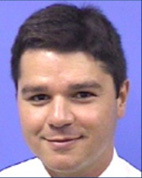From the experts at Spire St Anthony’s Hospital
Your heart is an incredible organ and needs to be cared for. It beats 100,000 times a day, pumping 2000 gallons of blood through 60,000 miles of blood vessels every day[1].The first heart cells start to beat four weeks after conception and continue until we die.
We all know that a healthy lifestyle leads to a healthy heart which in turn will help us live longer. But did you know it is the simple changes that we can all make that will ultimately make a big difference.
The consultant cardiologists from Spire St Anthony’s Hospital treat thousands of patients from right across the South, for simple to highly complex heart and circulatory diseases.
In essence, poor diet, lack of exercise and smoking are said to be the main causes of heart disease[2]. Here, Dr Magdi Saba and Dr Zia Zuberi provide some practical tips and insight for parents and their families to help them have a healthy heart.
TIPS FOR THE FAMILY
Exercise regularly
A brisk walk is as good as more vigorous activity from a heart health perspective. Try to get some form of exercise for 30-40 minutes several days a week. Try going on family walks to promote cardiovascular fitness and encourage the whole group to stay fit and active. Why not use a mobile phone App. or a pedometer to try and achieve 6000 steps a day? Or set this as a target and make it a family challenge – who walks the least and who hits the target most regularly?
Eat well
Do not overdo it with sugary drinks or snacks and carbohydrate-rich food. Reduce your reliance on red meat and try to eat fish at least once a week. Use common sense when snacking; fruit and nuts are better than a high-fat, high carbohydrate sausage roll. Keep an eye on your daily fibre intake; fibre is filling but low in calories, and it promotes gut health and helps keep cholesterol levels down.
TIPS FOR PARENTS
Keep your alcohol consumption down
Try to keep it down to a glass of wine or less per day. Alcohol itself is high in calories. Excessive alcohol consumption can raise body weight, raise blood pressure, and can lead to depression. Excessive drinking can also lead to arrhythmias (irregular heart beat), most notably atrial fibrillation. Atrial fibrillation is the most common sustained arrhythmia seen, and is a leading risk factor for a disabling stroke.
Avoid smoking.
Smokers are almost twice as likely to have a heart attack compared with people who have never smoked[3], so it is clearly a major risk factor. If you are a smoker then giving up is the single best thing you can do for a healthier heart. Look for practical support and tips to help you kick the habit as soon as you can.
Reduce your stress levels
This is easier said than done, but well worth the effort. Stress can be harmful to your heart for several reasons both directly and indirectly. An example of direct effects, stress can lead to or worsen abnormal rhythms, causing palpitations and anxiety. Stress can also lead to poor sleep patterns, over-eating and can elevate your blood pressure. Look at ways to reduce or manage your stress.[4]
Get checked out
If you feel your heart beating too fast or irregularly, or feel it frequently ‘skipping’ beats or thumping in the chest, you should tell your GP and get an ECG done to determine if there is anything wrong with the heart rhythm.
If you get dizzy spells associated with palpitations, it may be a sign of an abnormal heart rhythm, get it checked.
If you get particularly dizzy or lightheaded during exercise, or experience chest discomfort or undue shortness of breath, you should consult your GP.
If you’re over 40, ask your GP about having a health check to assess your risk of developing heart disease. This would include checking your blood pressure and cholesterol level.
If you’re over 50 and diabetic, or with family history of heart disease you are at higher risk yourself so be screened for coronary disease.
About the hospital:
Spire St Anthony’s Hospital has specialised in cardiac surgery since 1975 and provides a full range of treatments for heart conditions including diagnostic investigations and interventional cardiac procedures. Each year around 200 bypass graft and valve replacement procedures are carried out by leading London surgeons. With an intensive care unit (Critical Care Level 3) on-site, we are able to perform complex heart surgery and procedures for the majority of heart conditions.
[1] Daniels, Patricia, et. al. 2007. Body: The Complete Human. Washington, D.C.: National Geographic Society.
[2] http://www.nhs.uk/livewell/healthyhearts/Pages/Healthyheartshome.aspx
[3] https://www.bhf.org.uk/heart-health/risk-factors/smoking
[4] https://www.bhf.org.uk/heart-health/preventing-heart-disease/stress


